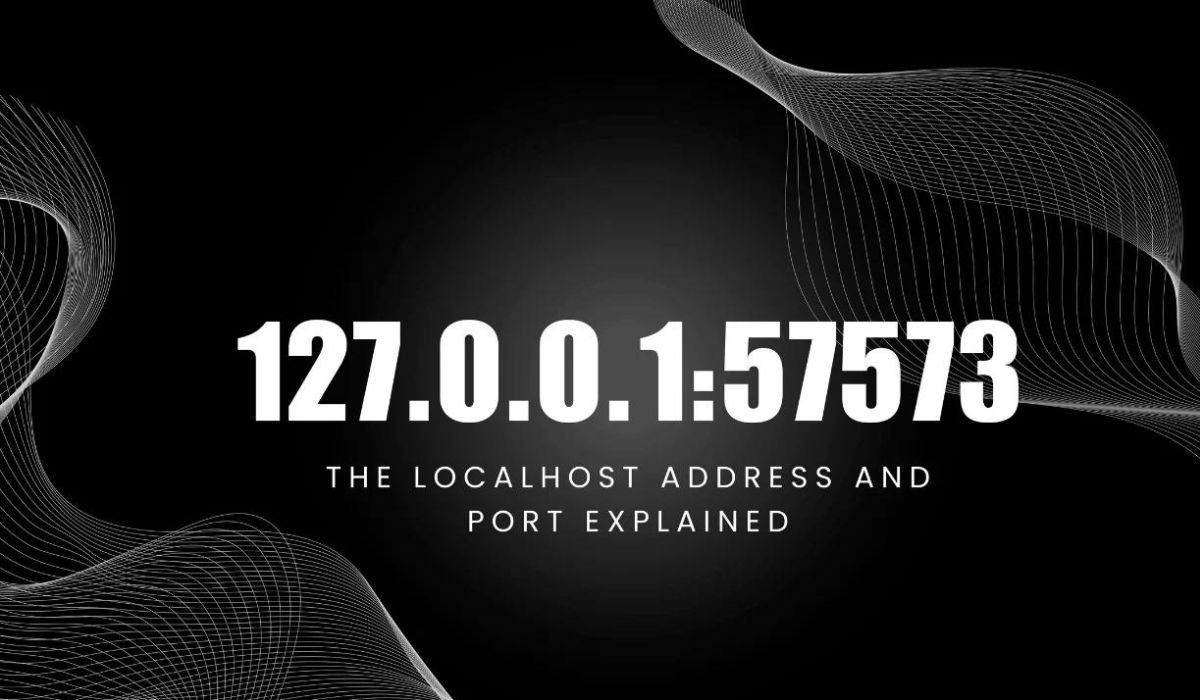Introduction to 127.0.0.1:57573
Imagine you’re in the middle of an important web development project, and you encounter an unexpected roadblock: the dreaded “Unable to connect to host 127.0.0.1 on port 57573 error. 127.0.0.1 is an IP address that developers often rely on to run local servers for testing and debugging purposes. When this error arises, it can disrupt your workflow and leave you scrambling for a solution. But don’t worry, we’re here to help.
In this article, we will explore the causes behind this common error and provide detailed steps to troubleshoot and resolve it. Whether you’re a seasoned developer or new to the world of local servers, understanding the root causes of this issue and how to fix it will save you time and frustration.
Understanding Localhost and 127.0.0.1
What is Localhost?
Localhost refers to the local computer that a program is running on. When you type “localhost” in your web browser’s address bar, you’re instructing the browser to connect to the server running on your own machine. This is crucial for web development, as it allows developers to test and debug websites and applications locally before deploying them to a live environment.
The Loopback IP Address 127.0.0.1
The IP address 127.0.0.1 is known as the loopback address. It is a special address that points back to your own computer, effectively creating a loop. This is useful for testing network software without the need to connect to an external network. In essence, 127.0.0.1 allows you to run a server and client on the same machine, communicating with each other as if they were on a network.
Common Use Cases of Localhost
- Web Development: Localhost is essential for developing and testing web applications before they are deployed to a live server.
- Testing and Debugging: Developers use localhost to run scripts, test databases, and debug code without affecting a live environment.
- Learning and Experimentation: Localhost provides a safe space for developers to experiment with new technologies and frameworks without the risk of breaking anything in a production environment.
The Error: “Unable to Connect to Host 127.0.0.1 on Port 57573”
What Does This Error Mean?
The error “Unable to connect to host 127.0.0.1 on port 57573” typically occurs when your application cannot establish a connection to a local server running on your machine. This specific error message is often encountered when working with automation tools like Selenium, which requires a connection to a web browser instance.
Common Causes of the Error
Several factors can lead to this error:
- Incompatible Selenium Software Versions: Mismatched versions of Selenium and the web browser can cause communication failures.
- Firewall Restrictions: Your computer’s firewall might block the connection to port 57573, preventing the application from accessing the server.
- Server Issues: The local server might not be running, or it could be experiencing issues that prevent it from accepting connections.
- Network Configuration Problems: Incorrect network settings or a misconfigured loopback adapter can also lead to this error.
Troubleshooting Steps
To resolve the “Unable to connect to host 127.0.0.1 on port 57573” error, follow these troubleshooting steps:
- Update Selenium and Browser Versions: Ensure that both Selenium and your web browser are updated to the latest versions. Compatibility issues are often resolved through updates.
- Check Firewall Settings: Verify that your firewall is not blocking the connection to port 57573. You may need to create an exception for this port in your firewall rules.
- Restart the Server: If the server is not responding, try restarting it. This can clear up any temporary issues that might be causing the error.
- Verify Network Configuration: Check your network settings to ensure that the loopback adapter is properly configured. Make sure that no other application is using the same port.
- Examine Logs and Error Messages: Review any logs or error messages generated by the server or the application. These can provide valuable clues about what might be causing the connection issue.
Solutions and Workarounds
Updating Selenium and Browser Versions
One of the most common causes of this error is incompatible versions of Selenium and the web browser you’re using. To fix this:
- Ensure Compatibility: Check the documentation for Selenium and your browser to ensure that they are compatible with each other. If necessary, downgrade or upgrade one of them to match the other.
- Automate Updates: Consider using tools that automatically update Selenium and your browser to the latest compatible versions. This can help prevent future compatibility issues.
Checking Firewall Settings
Firewalls are designed to protect your computer from unauthorized access, but they can sometimes be overzealous:
- Create an Exception: If your firewall is blocking port 57573, you can create an exception to allow traffic through this port.
- Disable Firewall Temporarily: As a last resort, you can temporarily disable your firewall to see if it is the cause of the issue. Remember to re-enable it afterward.
Restarting the Server
A simple restart can often resolve server issues:
- Graceful Restart: Try restarting the server gracefully to avoid data loss or corruption.
- Force Restart: If the server is unresponsive, a force restart might be necessary. Be aware that this could cause some data loss.
Verifying Network Configuration
Network misconfigurations can be tricky to diagnose:
- Check IP Address: Ensure that 127.0.0.1 is correctly mapped to localhost in your system’s hosts file.
- Test Connectivity: Use tools like
pingortelnetto test connectivity to 127.0.0.1 on port 57573.
Alternative Solutions
If the above methods do not resolve the issue, consider these alternatives:
- Use a Different Port: Sometimes, simply changing the port number can bypass the issue. For example, try using port 8080 or 3000 instead of 57573.
- Virtualization: Run your server inside a virtual machine or container to isolate it from the rest of your system. This can help avoid conflicts with other applications.
Additional Tips and Best Practices
Preventing Future Errors
To minimize the chances of encountering this error in the future, follow these best practices:
- Regular Updates: Keep all your development tools, including Selenium, browsers, and operating systems, up to date.
- Monitor Logs: Regularly monitor server logs for any signs of trouble. Early detection can prevent small issues from becoming major problems.
- Backup Configurations: Maintain backups of your network and server configurations. This will allow you to quickly restore a working state if something goes wrong.
Best Practices for Using Localhost
Using localhost effectively is key to a smooth development process:
- Isolate Environments: Use different environments (e.g., development, testing, production) to avoid conflicts and ensure that localhost is used appropriately in each case.
- Secure Your Server: Even though localhost is only accessible from your machine, it’s still a good idea to implement basic security measures, such as using HTTPS and strong passwords.
Further Resources
For more detailed information and community support, consider visiting the following resources:
- Selenium Documentation: The official Selenium documentation provides comprehensive guides and troubleshooting tips.
- Developer Forums: Websites like Stack Overflow and GitHub are excellent places to ask questions and share solutions with other developers.
- Networking Guides: Online resources on networking can help you understand the intricacies of IP addresses, ports, and firewalls.
YOU MAY ALSO LIKE: AMS39K: A Top to bottom Aide
Conclusion
The “Unable to connect to host 127.0.0.1 on port 57573” error can be frustrating, but with the right knowledge and troubleshooting steps, you can quickly resolve it and get back to your work. By understanding how localhost and 127.0.0.1 function, identifying common causes of the error, and following best practices, you’ll be better equipped to handle this issue in the future.
FAQs
What is the purpose of 127.0.0.1 and port 57573?
- 127.0.0.1 is a loopback IP address used for testing and debugging on your local machine. Port 57573 is commonly used by applications like Selenium for communication.
Why am I unable to connect to 127.0.0.1 on port 57573?
- This error usually occurs due to issues like incompatible software versions, firewall restrictions, or server problems.
How can I fix the “Unable to connect to host 127.0.0.1 on port 57573” error?
- Troubleshoot by updating software, checking firewall settings, restarting the server, and verifying network configurations.
Can I use a different port instead of 57573 for localhost?
- Yes, you can use an alternative port, like 8080 or 3000, to avoid conflicts and potentially resolve connection issues.
Is localhost (127.0.0.1) secure for testing and development?
- Yes, localhost is generally secure, but implementing basic security measures like HTTPS and strong passwords is recommended.










